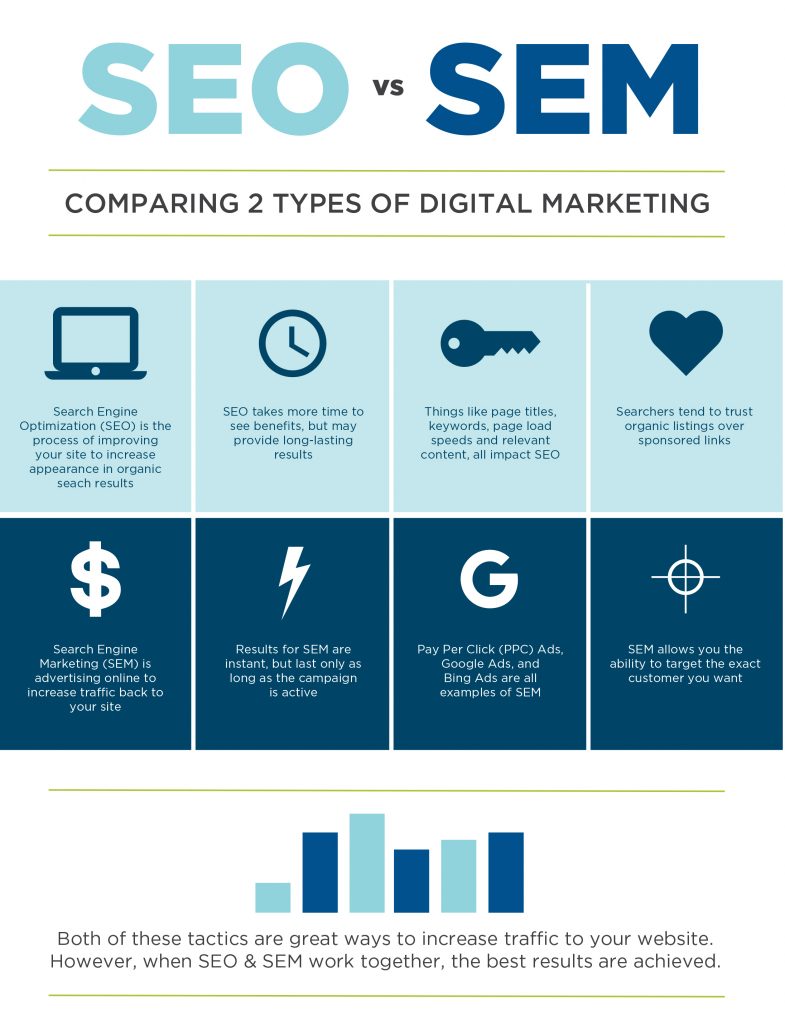Search engine optimization and search engine marketing are related, but they are far from being the same concept.

Here are the specifics, pros, and cons of search engine optimization and search engine marketing as they relate to your business.
Search Engine Optimization
Search engine optimization (SEO) is developing your website’s content to rank higher on search engines based on your business’s closest related keywords.
Using better, more specific keywords in the right places, from content to meta descriptions and snippets, will help your target audience find your website. The more helpful your content is, the more authority it will gain, and the higher your website will rank on search engines.
Here are the pros and cons of search engine optimization:
Pros
- SEO can be a lot cheaper than traditional marketing.
- SEO helps you become an authority in your niche, both online and off.
- You have the choice of learning SEO yourself or hiring an SEO professional.
Cons
- Results are not instantaneous.
- SEO Professionals that get results can be expensive.
- There are no guarantees.
Search Engine Marketing
Search engine Marketing (SEM) is using paid advertisements in search engines, such as Google Ads.
Ultimately, keywords are the core search engine marketing, just like they are the crux of SEO, but instead of getting the results organically, you pay for the results. The price of the keywords used in the ad you create for your business gets gauged by popularity and competition.
Here are the pros and cons of search engine marketing:
Pros
- Results through SEM are immediate.
- Even though you are paying for SEM, you have a lot of control over the cost.
- ROI is almost instantaneous and can be projected accurately for individual businesses.
Cons
- SEM has a high level of competition, which could lead to increased costs over time.
- Managing SEM, even through an SEM professional, can be labor-intensive and complicated.
- Accurately managing SEM campaigns are time-consuming.